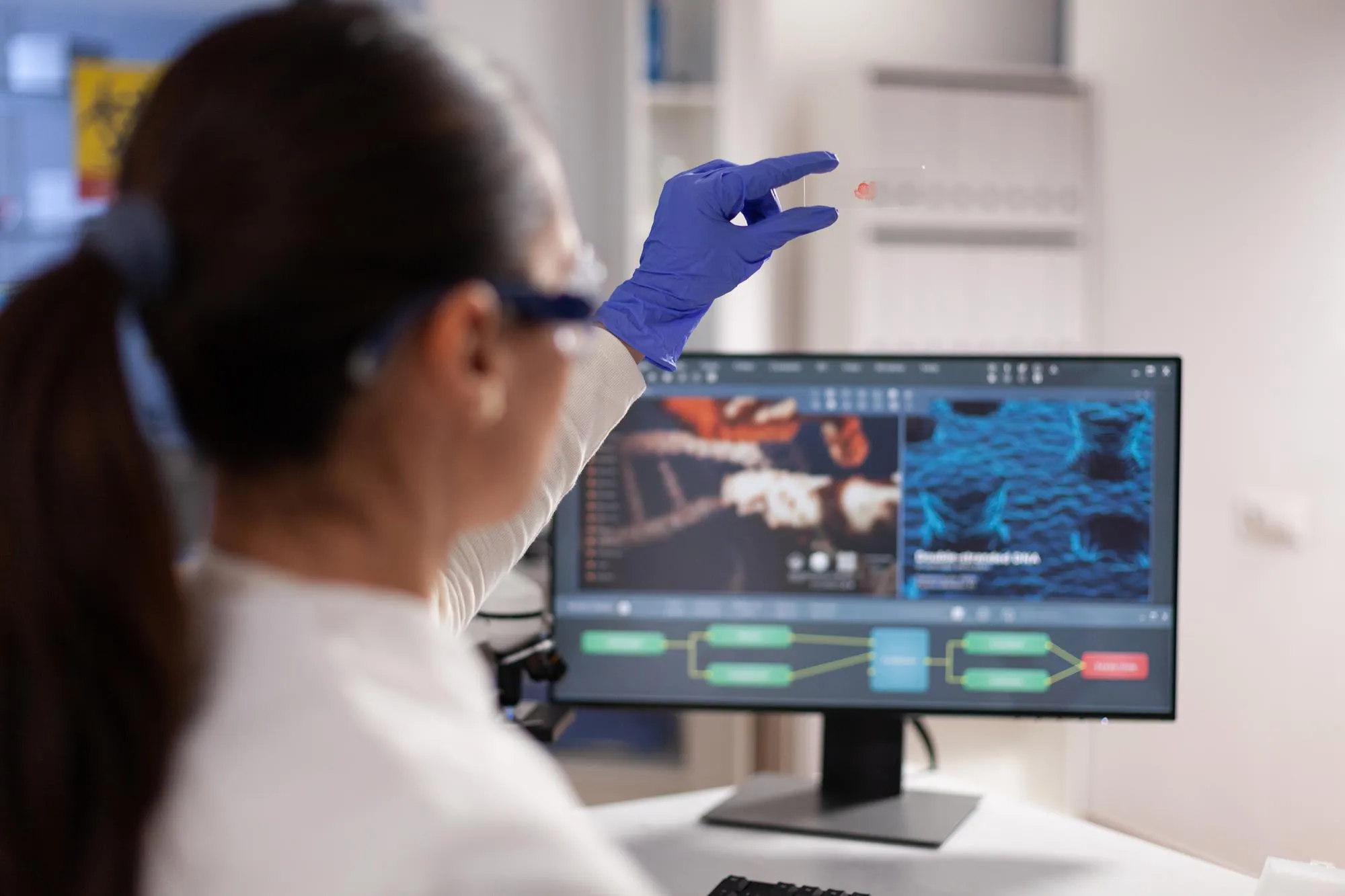Keywords
1. BacTag pipeline
2. Bacterial gene typing
3. Allele identification
4. Next-generation sequencing
5. Multi Locus Sequence Typing (MLST)
Introduction
In a significant advancement for microbiological genomics, a team of researchers from the Leiden University Medical Center, led by Dr. Lusine Khachatryan, has developed an innovative pipeline known as ‘BacTag’. This cutting-edge tool facilitates swift and precise typing of genes and alleles in bacterial sequencing data. The development of BacTag responds to a growing need in both clinical diagnostics and epidemiological studies to rapidly and reliably identify gene variations within bacterial species – a process imperative to understanding infection dynamics, tracking bacterial lineage, and devising effective treatments.
Background
Bacteria harbor numerous genes, each with potentially multiple alleles that can cause differences in virulence and influence subspecies classification. The standard practice of gene and allele identification involves mapping sequencing reads to each known allele reference, a task that is both painstaking and time-consuming. The efficiency of this process is crucial, especially given the emergent global threat posed by bacterial infections and antibiotic resistance. Consequently, technologies that can expedite and enhance the accuracy of bacterial sequencing hold substantial value in the fields of healthcare and microbial research.
BacTag—An Innovative Approac
Dr. Khachatryan and her interdisciplinary team designed BacTag to streamline the gene and allele detection process. Underpinning this pipeline is the strategic preprocessing of the bacterial gene database. During this phase, a representative reference sequence for each gene is established, with variations between this sequence and all other alleles meticulously documented. DOI: 10.1186/s12864-019-5723-0
In the operational phase, rather than mapping individual reads to numerous allele references, BacTag aligns them to the designated reference sequence to ascertain the gene’s presence. Upon discovery, variations in the sequence are compared against the preprocessed database, thus pinpointing the precise allele in the sample. This approach not only speeds up the process but also holds the potential for higher accuracy levels compared to traditional methods.
Testing and Validation
The BacTag pipeline was rigorously tested on both synthetic and real Whole Genome Sequencing (WGS) data, encompassing E. coli, S. pseudintermedius, P. gingivalis, M. bovis, Borrelia spp., and Streptomyces spp. In addition, it was validated using actual WGS data from E. coli and K. pneumoniae to identify alleles of Multi Locus Sequence Typing (MLST) housekeeping genes. In each instance, BacTag performed favorably, demonstrating its efficacy in a real-world setting.
A Comparative Advantage
A comparison with other prevalent tools in the domain revealed that BacTag offers either superior or at least comparable performance levels. Its advantages lie not only in its speed and accuracy but also in its use of parallel computing – a feature that significantly enhances its throughput capabilities. As such, BacTag represents a much-needed solution for projects that require quick subspecies classification and detailed genetic analysis.
Ethical and Publication Considerations
The development of BacTag did not involve any human materials or clinical records, thereby bypassing the need for approval from a medical ethics committee, as confirmed by the Medical Ethical Committee of the Leiden University Medical Center. Moreover, the study has been published without conflict of interest, ensuring the integrity and impartiality of the research.
Research Significance and Future Implications
The introduction of BacTag marks a remarkable achievement in the field of bacterial genomics. By making allele typing a more manageable undertaking, BacTag opens doors to numerous applications, such as improved bacterial subspecies classification, and enhanced clinical diagnostics. Its utility could be a game-changer in epidemiological surveillance, particularly regarding the swift identification of drug-resistant bacteria and the prevention of infectious outbreaks.
The team at Leiden University Medical Center hopes that BacTag will serve as a versatile instrument in bacterial research, catering to a wide array of scientific inquiries that rely on precise genetic information. As the tool is refined and adopted, it could well set a new benchmark for genetic analysis in public health and hospital microbiology labs.
Conclusion
BacTag stands as a testament to the synergy between microbiology and computational genomics, offering a robust solution to the challenges of bacterial gene and allele typing. Dr. Khachatryan’s work validates the importance of innovation in responding to public health needs, particularly in an era where rapid and accurate microbial diagnostics are more critical than ever. The successful deployment of BacTag has the potential to enhance our understanding of bacterial genetics significantly, potentially shaping the future of medical microbiology.
References
1. Khachatryan, L., Kraakman, M. E. M., Bernards, A. T., & Laros, J. F. J. (2019). BacTag – a pipeline for fast and accurate gene and allele typing in bacterial sequencing data based on database preprocessing. BMC Genomics, 20(1), 338. doi: 10.1186/s12864-019-5723-0
2. Konstantinidis, K. T., Ramette, A., & Tiedje, J. M. (2006). The bacterial species definition in the genomic era. Philos Trans R Soc Lond Ser B Biol Sci, 361(1475), 1929-1940. doi: 10.1098/rstb.2006.1920
3. Jackson, R. W., Athanassopoulos, E., Tsiamis, G., Mansfield, J. W., Sesma, A., et al. (1999). Identification of a pathogenicity island, which contains genes for virulence and avirulence, on a large native plasmid in the bean pathogen Pseudomonas syringae pathovar phaseolicola. Proc Natl Acad Sci U S A, 96(19), 10875-10880. doi: 10.1073/pnas.96.19.10875
4. Maiden, M. C., Bygraves, J. A., Feil, E., Morelli, G., Russell, J. E., et al. (1998). Multilocus sequence typing: a portable approach to the identification of clones within populations of pathogenic microorganisms. Proc Natl Acad Sci U S A, 95, 3140-3145. doi: 10.1073/pnas.95.6.3140
5. Gupta, A., Jordan, I. K., & Rishishwar, L. (2016). StringMLST: a fast k-mer-based tool for multilocus sequence typing. Bioinformatics, 33(1), 119-121. doi: 10.1093/bioinformatics/btw586
